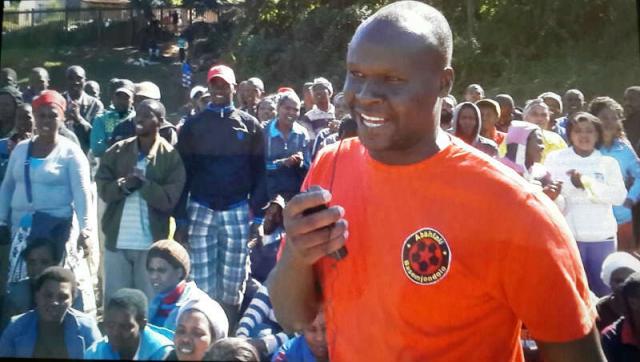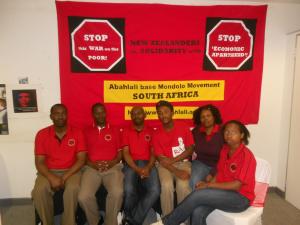http://m.news24.com/CityPress/Columnists/Prove-me-wrong-Durbs-Nail-them-20120512
Prove me wrong, Durbs. Nail them
by Paddy Harper
There’s a massive opportunity right now for the politicians and bureaucrats who run the city of Durban to do the right thing.
Mayor James Nxumalo, his executive committee, city manager S’bu Sithole and the councillors who make up the eThekwini council have an amazing chance to act decisively against those who have raided the city’s coffers and bent the rules to their own advantage for the past decade.
They were given this chance last year when KwaZulu-Natal Cooperative Governance MEC Nomusa Dube appointed the Manase forensic audit into abuse of city finances to the tune of R500 million in the 2009/10 financial year.
Dube brought in the external investigators to look at, among other things, abuse of emergency spending regulations by then city manager Mike Sutcliffe and his team.
They also probed allegations that councillors and their families had been illegally doing business with the city.
The intervention was sparked by a series of leaks to the media during a war of words between Sutcliffe and then mayor Obed Mlaba, which saw both being implicated in dodgy dealings and embarrassed the ruling party by having its dirty laundry being aired in public.
The right decision was taken for the wrong reason, but at least there was a chance to rid the city of some seriously bad people and practices.
After several months, a report with a series of recommendations was given to the city, which had 90 days to respond and outline a course of action.
It had six months to implement it. Things looked good.
The city had an opportunity – and a Constitutional obligation – to nail those fingered by Manase and clean up its systems to ensure that the kind of cronyism that took place could be prevented in future.
Then strange things started happening. Dube, Sithole and Nxumalo refused to make public Manase’s full report or even its edited findings. Councillors have still not seen the full report.
Both Dube and Sithole claimed the ban was to allow those fingered time to respond, but both have selectively quoted from its contents, naming Sutcliffe and other officials – but not the councillors – implicated.
The DA has gone to the courts to get access to the full report. The city has created an unnecessary – and costly – battle, which it will lose.
More ratepayers’ money will be flushed away simply because somebody wants to protect those accused of raping the city’s coffers. This is very strange logic.
Council then decided that it would mandate its executive committee and city manager to decide how to deal with Manase’s recommendations.
Councillors Stanley Xulu and Nondumiso Cele, both of whom Manase fingers for doing business with the city, sat in the exco meeting that took these decisions.
Nobody in council made any attempt for their recusal, despite their vested interest in the outcome of the behind closed doors meeting.
The exco decision was that the city’s ethics committee and speaker Logie Naidoo deal with allegations against councillors and Sithole those against officials.
The ethics committee hearings started weirdly. Evidential procedures were changed in what appears to be a clumsy bid to protect the 10 councillors, including Cele and Xulu.
Officials with a legal background led evidence at the initial hearings, but Sithole stepped in to order that evidence be led by councillors instead.
The hearings have been held in committee, with the media and the public barred from hearing which elected office bearers broke the rules to benefit themselves and their families.
This week Cele, Xulu and a third councillor were given a slap on the wrist in the form of fines, with no further sanction against them. The public has also been denied knowledge of what they did wrong.
In the case of Sutcliffe, the city has gone for the throat, despite his argument that every decision he took was in line with ANC policy – read: dictated by the eThekwini regional leadership – and reflected the wishes of the ruling party in council.
Sithole has publicly fingered Sutcliffe and has promised both criminal and civil action.
Two senior members of Sutcliffe’s team, procurement head Derek Naidoo and housing boss Cogi Pather, have been allowed to bow out through non-renewal of contracts rather than the city immediately suspending them, and taking criminal and civil action.
The city still has about a month to present its full programme to deal with the corruption, initiate action against those implicated and implement better corporate governance measures.
Sithole has been adamant he is following process. Nxumalo wants crooked councillors be given a second chance.
The city’s public actions on Manase thus far have done little to instil confidence that the political will is there to make sure that politicians, bureaucrats and the dodgy businesspeople who made money from them are held to account.
It really looks as though the city is going to let the chance to do the right thing slip away.
It would be really nice if Durban’s fathers and mothers were to prove me wrong.


